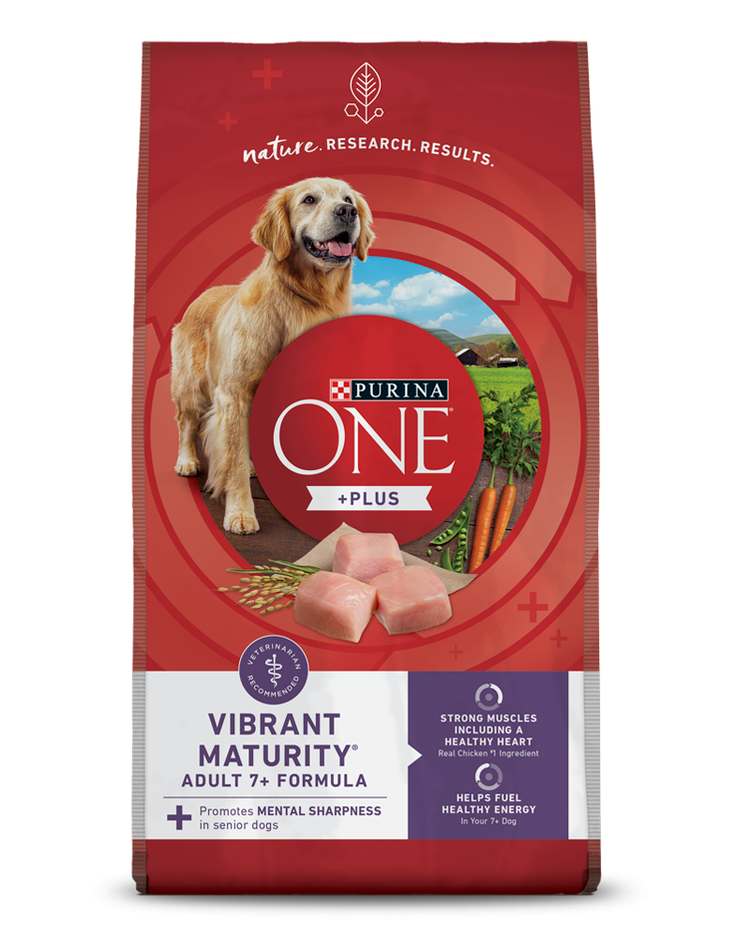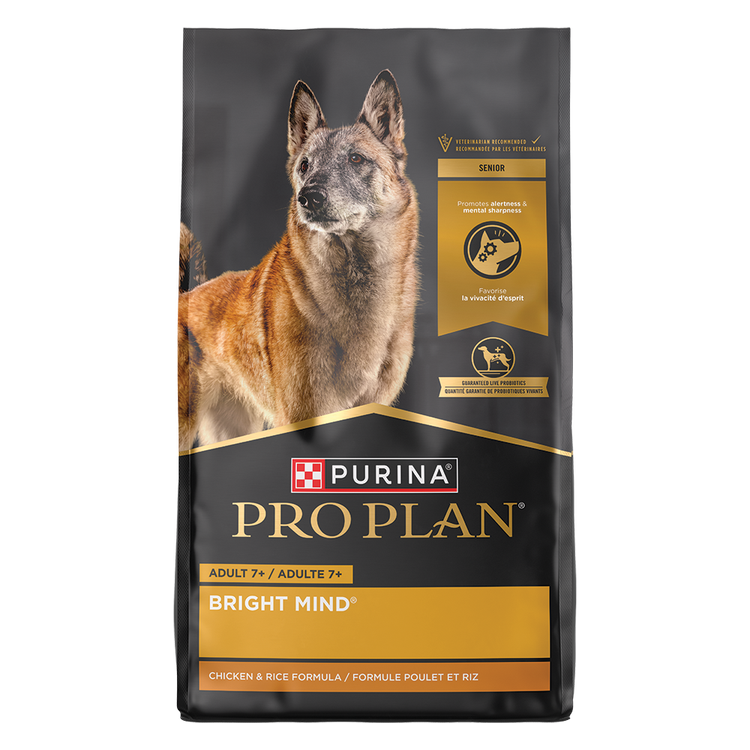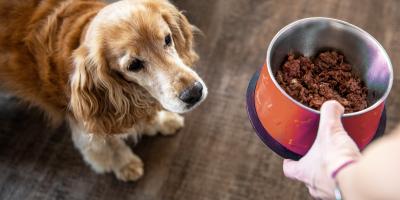When to Switch to Senior Dog Food


Is your dog seven years or older? It may be hard to believe, but he is approaching his senior years. And if he’s a large breed, he may reach his senior years even earlier.
Like humans, dogs undergo physical changes as they age, causing their nutritional needs to change as well. That’s why it’s important to feed your dog the right food to nourish his aging body and mind. When choosing a dog food for senior dogs, consider the following factors:
Activity Level
Older dogs are usually less physically active than younger dogs, which makes them prone to gaining weight. Dog food for older dogs often has fewer calories to help older dogs maintain a healthy weight and ideal body condition. If your older dog is not as active as he used to be, you may want to consider a senior formula that has fewer calories than his adult formula to help prevent weight gain.
Even if your dog has slowed a bit, you still want him to be strong and active. To help support mobility and strong muscles, dog food for senior dogs often has higher protein levels than adult formulas. In fact, increased dietary protein can actually help slow age-related loss of lean body mass and support a healthy immune system. Glucosamine is also added to senior formulas to help support healthy joints.
Mental Sharpness
Dogs may show less interaction with you and lower engagement in daily activities as they age. Fortunately, nutrition like Purina ONE Vibrant Maturity 7+ Formula with enhanced botanical oils naturally nourishes your senior dog’s brain and helps promote mental sharpness, helping him think more like his younger self.
Appetite
As dogs grow older, their senses of taste and smell decline. This may lead to a reduced appetite in some dogs. If your senior dog is showing less interest in his food, first see your veterinarian. Once any medical causes are ruled out, try enhancing your senior dry dog food formula with water or wet food to make it more palatable. Read packaging labels for feeding instructions – you’ll want to decrease dry food when adding wet, and the label should tell you how much of each to feed.
Dental Health
Senior dogs often develop dental problems, which can cause sensitive teeth and gums. Adding moisture, such as water or wet food, can help soften the dry kibble and make it easier for senior dogs to chew.

Find Your Pet’s Perfect Food
Get your personalized recommendation with our Pet Food Finder tool.






